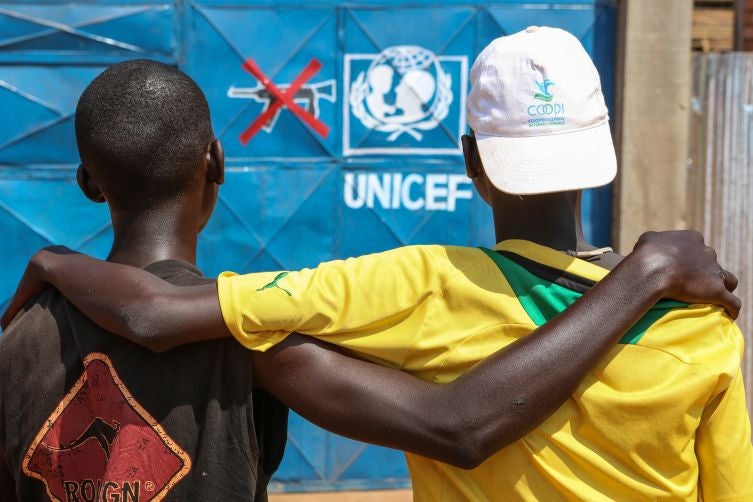'I was certain he would be killed'
A young Central African describes how Unicef helped reunite him with his brother, a former child soldier

Your support helps us to tell the story
From reproductive rights to climate change to Big Tech, The Independent is on the ground when the story is developing. Whether it's investigating the financials of Elon Musk's pro-Trump PAC or producing our latest documentary, 'The A Word', which shines a light on the American women fighting for reproductive rights, we know how important it is to parse out the facts from the messaging.
At such a critical moment in US history, we need reporters on the ground. Your donation allows us to keep sending journalists to speak to both sides of the story.
The Independent is trusted by Americans across the entire political spectrum. And unlike many other quality news outlets, we choose not to lock Americans out of our reporting and analysis with paywalls. We believe quality journalism should be available to everyone, paid for by those who can afford it.
Your support makes all the difference.The author of this piece is the brother of a former child soldier and has asked not to be identified
Please donate to our appeal for child soldiers here.
When I learned that my brother Malik had become involved with the rebel group, the CPJP, I was heartbroken. I was devastated by the news, it felt like I’d been informed of his death—I was certain he would be killed sooner or later anyway.
It was months before we heard anything from him, and it was only after he called that the family began to relax. I begged him to leave the CPJP. He promised to leave one day, but he had been made an officer by then and he couldn’t just go. He said that if he left the group he would be forced to leave the Central African Republic, and that he would never do that. I wanted to see him, but how?
When I heard that the Unicef team was going to Akoursoulbak to release child soldiers, I thought my prayers had been answered. On July 27, 2012 Unicef managed to secure Malik’s release. I arranged for out reunification to take place in the capital, Bangui. This was because it was further from the fighting, further from the CPJP. They thought Malik would come back, but I believed in him even when nobody else did.
On November 15, 2012 the dream became reality, at five pm Malik arrived at the airport in Bangui. I was in college when I hears the news. I rushed home to get there before him. I heard a knock on the door and there he was. It was very emotional. I could help but cry, truthfully, I cried because I missed him.
I informed the family, my mother and my siblings the same day. What a joy this day was. We celebrated as if Malik has been resurrected.
It is thanks to Unicef’s work that I got my younger brother back.
I pray that Unicef is able to continue its programme to release child soldiers and reunite them with their families, to give them a chance to succeed and earn a living. Malik’s example shows that this is possible.
Malik is my youngest brother, and although he was formerly associated with an armed group, a child with a gun in his hand, I believe he will now complete his studies. I'm sure he can succeed with my support.
With his courage and determination, he will one day be of great service to his country.
Names have been changed to prevent identification
Please help Unicef reunite more children in the Central African Republic by supporting our campaign
Join our commenting forum
Join thought-provoking conversations, follow other Independent readers and see their replies
Comments